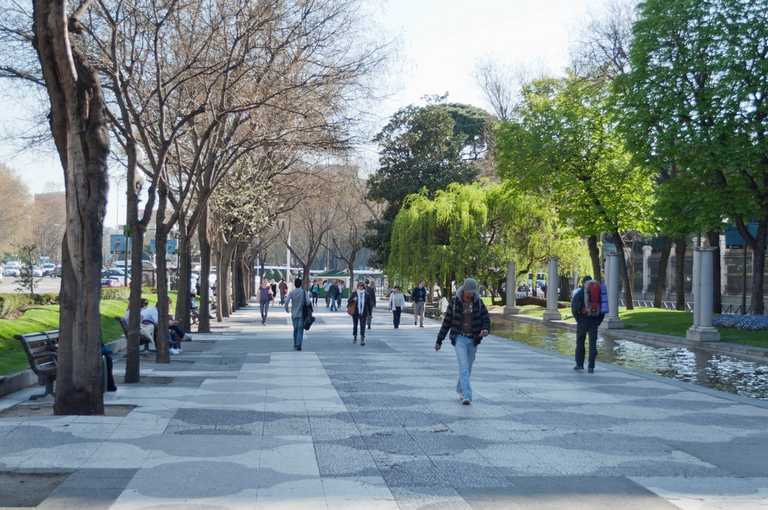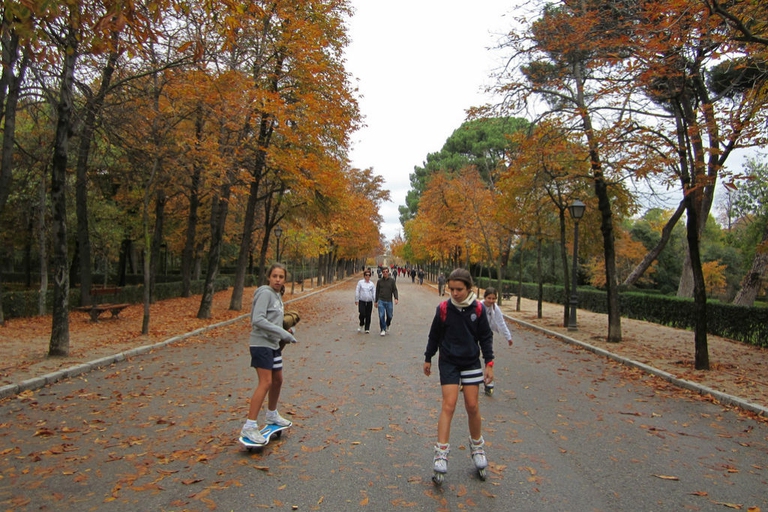
Sharon Lavigne, one of the six winners of the 2021 Goldman Environmental Prize, is fighting to protect her community from plastics corporations.
The municipality of Spain’s capital decided to allocate millions of euros to mitigate the effects of climate change.
The city of Madrid will protect itself from summer high temperatures by creating recreational green areas for its inhabitants. The decision was taken by the Mayor, who wanted to give new life to the Spanish city.
New parks, pine trees along the city’s avenues, urban orchards, green roofs, vertical gardens are planned to be built. A green revolution that will make Madrid resilient against climate change. According to a study conducted by Madrid’s Energy Department, the first evidence of climate change are increasingly long periods of high temperatures.
“The European project Ensembles, which analyses various scenarios in Madrid in the next 80 years, shows a 20 per cent increase in the number of abnormally warm days in summer, with an average increase of four degrees Celsius”, reads El Pais.
For this reason, the city chose to prepare to tackle high temperatures with a forward-looking decision with one of the best weapons: public green spaces. “Madrid Mas Natural” is “a plan to increase the number of green areas and promote community orchards”, said Mayor Manuela Carmena. 22 new community orchards and lots will be transformed into public areas.
These green spaces will help mitigate temperatures and bolster humidity in the city: studies estimate that by 2050 there could be a 25% drop in the city’s rainfall and plants will help fighting drought. And that’s not all, new trees and shrubs will help drastically reduce air pollution: Madrid is one of Europe’s most polluted capitals so much so that it has planned to ban diesel cars completely by 2020.
And more importantly this forward-looking plan will hopefully set a good example for other European capitals because nature is a universal solution against the most notable climate events. This is resilience too.
Click here to discover more
Siamo anche su WhatsApp. Segui il canale ufficiale LifeGate per restare aggiornata, aggiornato sulle ultime notizie e sulle nostre attività.
![]()
Quest'opera è distribuita con Licenza Creative Commons Attribuzione - Non commerciale - Non opere derivate 4.0 Internazionale.
Sharon Lavigne, one of the six winners of the 2021 Goldman Environmental Prize, is fighting to protect her community from plastics corporations.
Plastic pollution is airborne too. Microplastics are being carried across continents by the wind, as a recent study reveals.
Levels of particulates in New Delhi in 2020 were once again far above safety thresholds, with extremely serious health consequences for its citizens.
A major oil spill in the Ecuadorian Amazon in April has left the Coca River polluted. The indigenous Kichwa are suing the companies whose pipelines broke.
Molecules that eat up plastic waste, including PET bottles, may soon become widely used as scientists leap ahead in developing new super enzymes.
In Italy’s Land of Fires between Naples and Caserta, activists like Carmen Medaglia are fighting to promote new ways of managing waste.
Toxic substances in Kamchatka’s waters have killed 95% of marine fauna and caused health problems for surfers. The causes, however, are still unknown.
A Magellanic penguin was found lifeless on a Brazilian beach: in its stomach, an N95 face mask. Researchers believe the animal died from ingesting it.
The drop in air pollution during worldwide lockdowns helped prevent thousands of premature deaths. But the situation is returning to pre-crisis levels.









